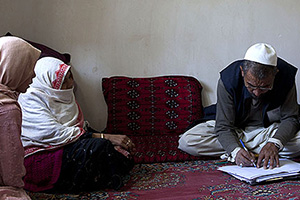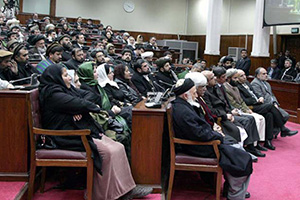OverviewAccurate information on population trends is essential for sound policies which affect the daily lives and wellbeing of millions in Afghanistan. Only with solid population data, such as the numbers and distribution of populations, their gender profile, socioeconomic status, access to services, etc., can policies reflect the needs of people on the ground. Years of conflict have contributed to a devastating brain drain. This has meant that updated data has not been available for decades and the Central Statistics Organization (CSO) of Afghanistan, the government body responsible for collecting and analysing data, has suffered a loss of critical skills and capacity. The last census was conducted in 1979 and was itself incomplete, yet forms the basis for extrapolations affecting policymaking even in 2014. Meanwhile, political insecurity and capacity considerations have posed challenges to plans for a new census (last proposed in 2008). Although there has been some progress in conducting nationally sampled surveys, such as the National Risk and Vulnerability Assessment 2011-2012, the Afghanistan Multiple Indicator Cluster Survey 2010-2011 and the Afghanistan Mortality Survey 2010, most databases do not form part of an integrated nation-wide statistical system. To address this, the CSO is now implementing the Socio-Demographic and Economic Survey (SDES), a detailed population analysis which will eventually be conducted in every province of the country. Data gaps It is important to ensure that the data used by individual ministries in planning for development is consistent in interpretation and methodology, particular with regard to women, youth and reproductive health. As robust data becomes available in Afghanistan, policymakers are becoming increasingly aware of its use in evidence-led policymaking. UNFPA's key achievements- A Social Demographic and Economic Survey has, in lieu of a census, been conducted by the Central Statistics Organization in six provinces of Afghanistan with technical support from UNFPA. This represents the first time in 30 years that robust and up-to-date demographic data is available to support policy making in Afghanistan. - A Geographical Information System survey accompanied the SDES, which provided an accurate mapping of communities, including local schools, hospitals and mosques, and will be an invaluable aid in granular disaster planning. - UNFPA has provided technical support to CSO staff, helping improve survey planning, data collection, processing, analysis and data dissemination. - UNFPA supports members of parliament in developing better legislation, by supporting the drafting of laws and laying the groundwork for use of robust national population data for policy and planning. - A Population and Development Forum was established for the lower house of Parliament. |
Data for development and planning
Supporting data-based decision-making
|


